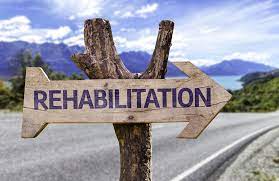 One of the most common causes of relapse in addiction is not being able to meet physical and emotional needs. In recovery, people need to strengthen their physical and mental health. They must avoid situations that trigger their urge to use drugs or alcohol. This can include situations such as vacations, weddings, or after-work happy hours. navigate to this website
One of the most common causes of relapse in addiction is not being able to meet physical and emotional needs. In recovery, people need to strengthen their physical and mental health. They must avoid situations that trigger their urge to use drugs or alcohol. This can include situations such as vacations, weddings, or after-work happy hours. navigate to this website
Relapse is a very common occurrence for recovering addicts. The brain changes in addiction and reintroduces the chemicals that addicts crave. Research shows that 40 to 60% of recovering addicts relapse at some point. But that doesn’t mean you’re doomed to relapse, and you can prevent it by sticking with your recovery program.
Keeping away from the substances of abuse is also crucial for the recovery process. Trying to avoid alcohol or drugs is especially difficult, because the substances can surface in unexpected places. You need to learn to recognize the triggers and avoid them. You can ask other people for help to identify which situations are likely to trigger your urges.
A relapse is a traumatic event for the addict and their families. During a relapse, the person struggles to control their emotions. They experience mood changes, sleep problems, and withdrawal from activities and friends. When emotions are out of control, people can’t cope with the situation and can end up using drugs or alcohol again.
Stress is another major factor that triggers relapse. People with addiction are highly sensitive to stress and are at a greater risk for relapse if they are under high levels of stress. Furthermore, relapse is associated with family problems and geographical accessibility. The relapse rate increases significantly when individuals have problems with their families or peers.
Another cause of relapse in addiction is social isolation and boredom. People with addiction tend to isolate themselves from others, and it may become difficult for them to articulate their new identity while in recovery. Being around people who drink or use drugs or alcohol can trigger a relapse, so they need to avoid social situations where they might interact with them.
In addition to peer pressure, a recent study found that parental status is an important factor. Patients with SUD who lived with only mothers were at higher risk of relapse than those who lived with their biological parents. The number of substances used and the type of access were also important factors. Further research should focus on the type of support that relapse prevention programs can provide to their patients. This can be particularly helpful in treating drug-addicted individuals.
